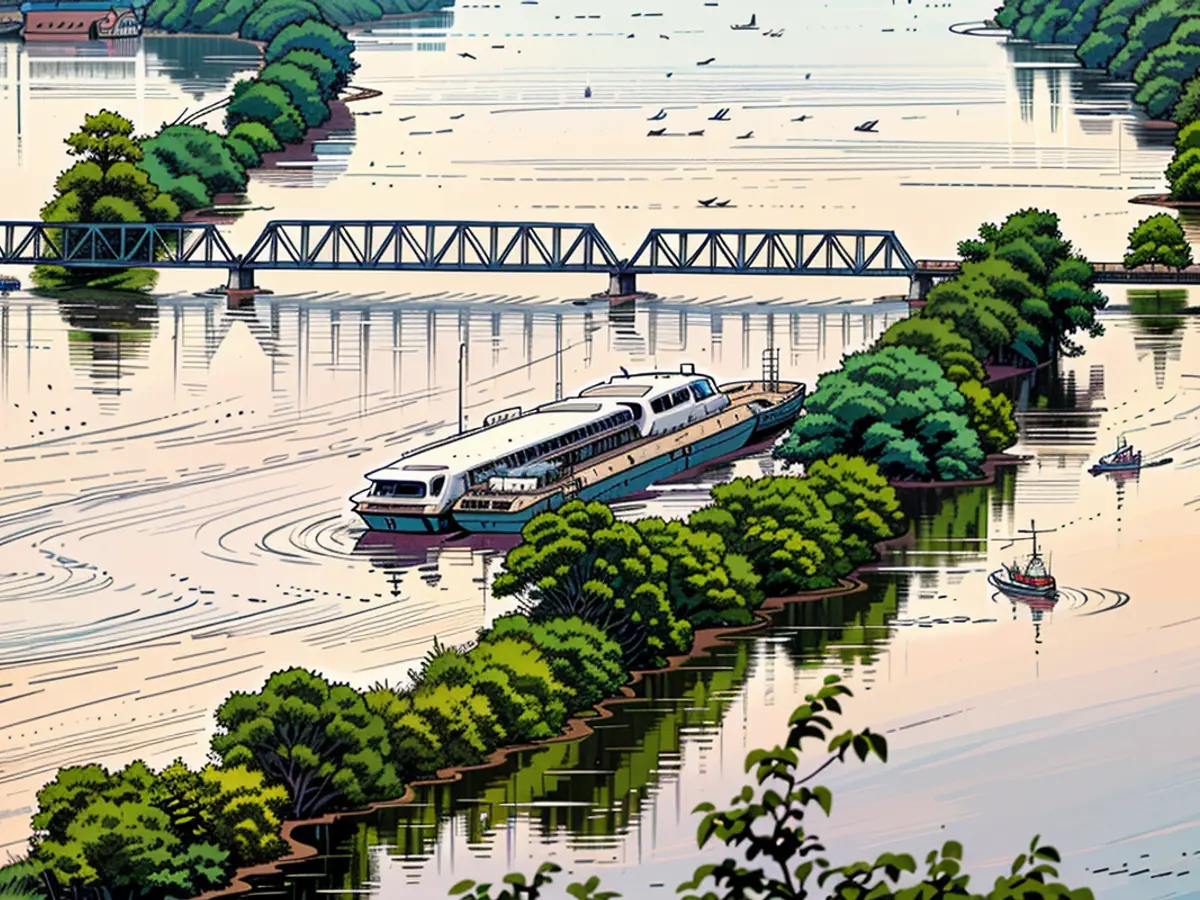Flooding catastrophe - Climate activists critique Scholz's visit as mere symbolic action.
Not too long ago, various regions in South Germany have experienced a deluge of rain that comes only once every 50 to 100 years. Consequently, houses, cars, land, and city streets were washed away. There are even some areas that remain submerged underwater.
The planet's temperature has increased by around 1.1°C from the pre-industrialized age, as per the German Weather Service. In Germany, this temperature change is recorded at 1.6°C. Since different regions can experience extreme weather conditions like storms, flooding, or even heatwaves and droughts, this emphasizes the devastating impact of climate change.
Ronja Hofmann, a representative of Fridays for Future Bavaria, criticized Bavaria's Prime Minister, Markus Soeder (CSU). She expressed her disappointment at Soeder's question to people whose homes were ruined by the floods regarding their insurance. Soeder, who had previously advocated against climate change, now wants to conceal the issue before the European elections.
Professor Harald Lesch, a physicist and a pro-climate activist, also pleaded for stronger climate precautions. He criticized the politicians, commenting, "How frequently must our leaders stand in boots covered in water before they acknowledge the fact: Climate protection surpasses political interests?"
Read also:
- Despite the Federal Government's pledges to address climate change, the recent flood disaster in Southern Germany has sparked criticism from climate activists like Luisa Neubauer.
- The storm brought relentless rain that resulted in a catastrophic flooding situation, causing significant damage in Berlin and other parts of Germany, turning several areas into flood zones.
- The car industry, heavily dependent on precision manufacturing, has also been affected by these extreme weather conditions, leading to concerns about production schedules in Baden-Württemberg.
- Several furniture stores in Germany had to close temporarily due to the floods, leading to a loss of sales and customer service disruptions.
- Olaf Scholz, the German Chancellor, visited affected areas, but his visit was criticized by climate activists as mere symbolic politics, failing to address the root causes of climate change.
- The German Press Agency reported that the insurance industry is under strain, facing claims worth billions due to the flood disaster, with some policyholders left without adequate coverage.
- The flooding has raised questions about the preparedness of the government and local authorities in terms of climate risk management and infrastructure resilience.
- Several politicians, including Markus Söder, the Bavarian Prime Minister, have been criticized for their ambivalence towards climate change, despite the visible impact of climate change on Germany.
- Climate activists have called for a shift from symbolic politics to concrete actions and investments in renewable energy and climate resilience infrastructure.
- Fridays for Future activists have organized protests in Berlin and other major cities, demanding more aggressive climate policies and holding their leaders accountable for inaction.
- In response to the criticism, the Federal Government has announced plans to invest in climate protection measures, including flood barriers and early warning systems, in a bid to minimize the impact of extreme weather in the future.








